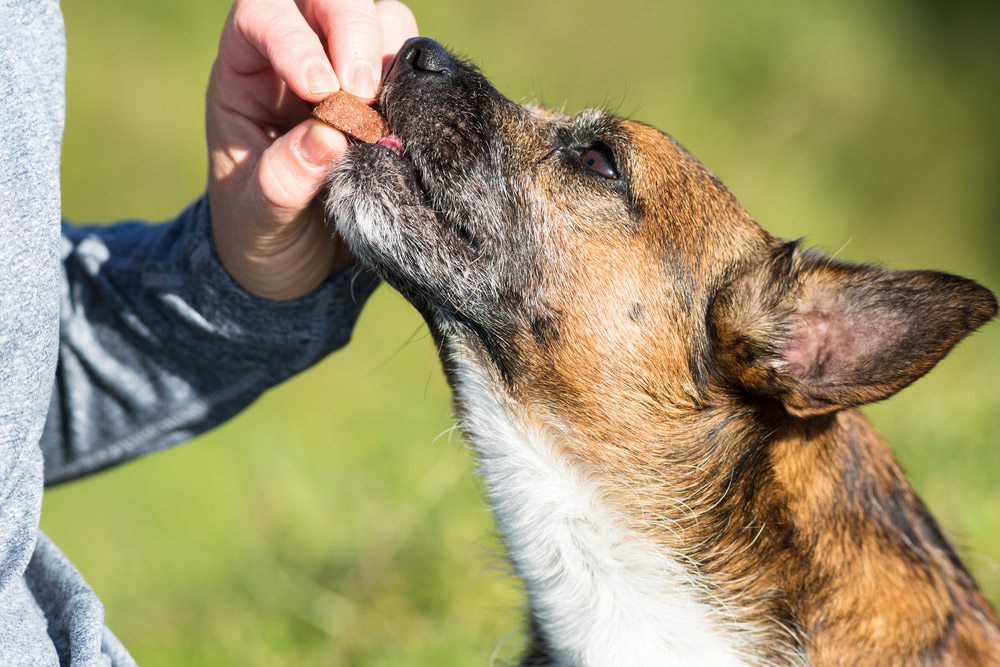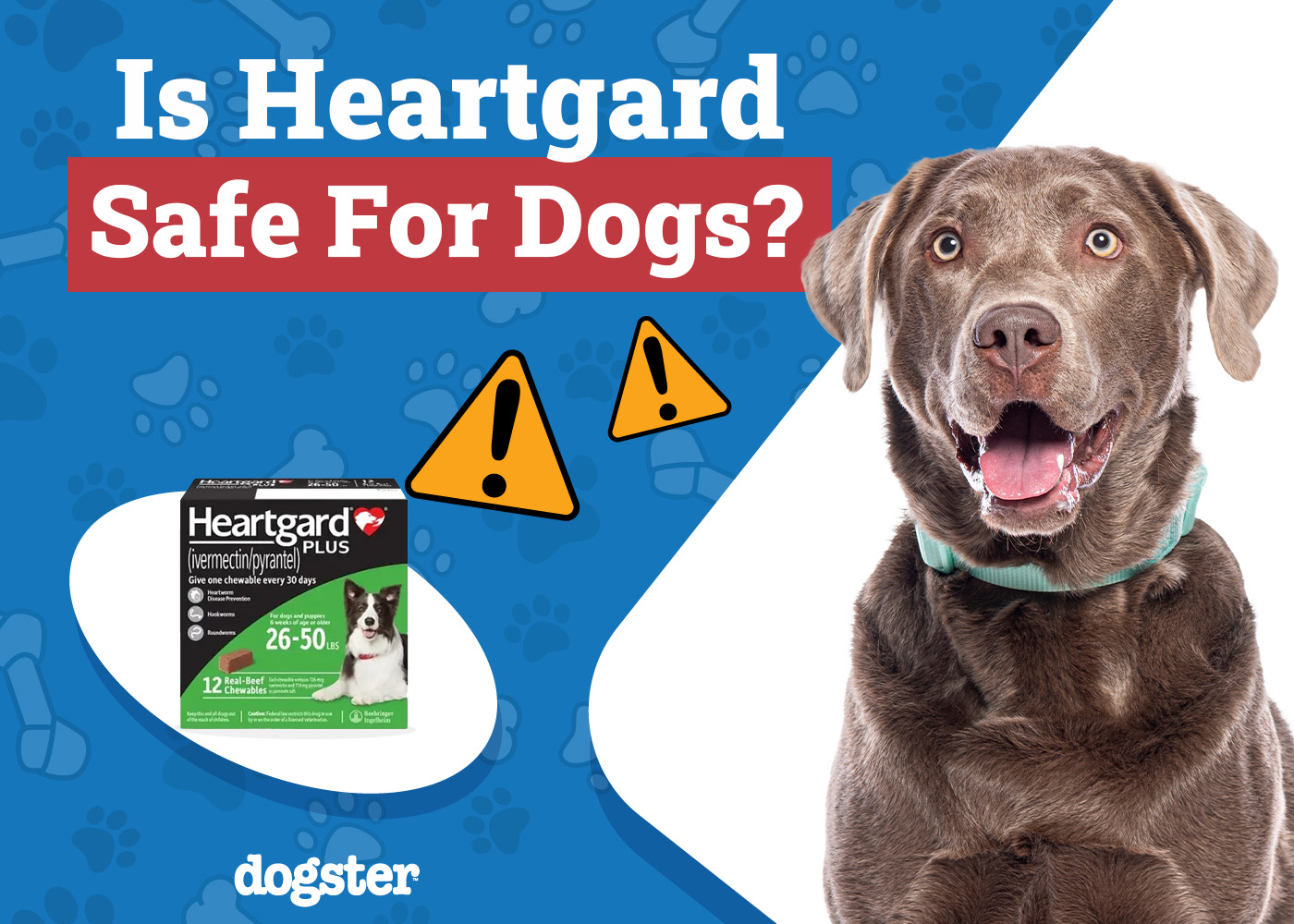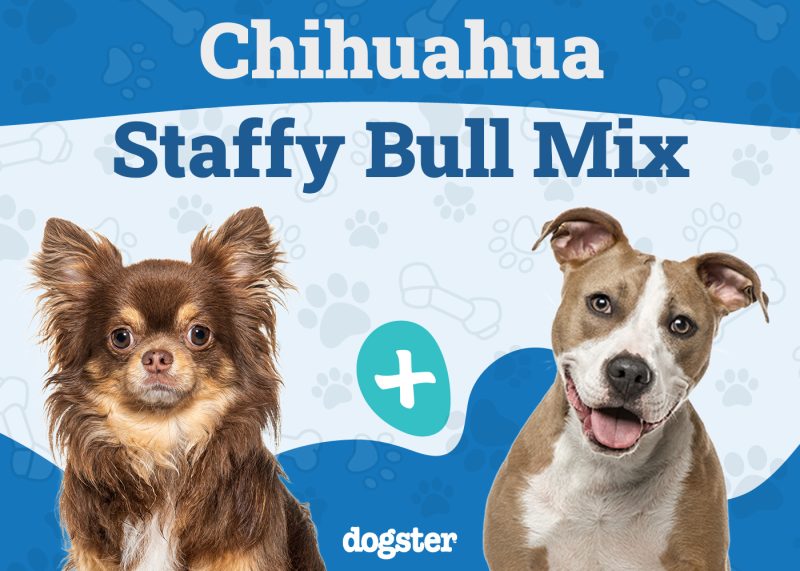In this article
View 3 More +Heartgard Plus is a chewable preventative treatment for dogs that helps keep them safe from the likes of heartworms, hookworms, and roundworms. Heartgard Plus is generally considered safe for dogs over 6 weeks of age, including breeding and pregnant dogs.
That said, the fact that some breeds are more susceptible to ivermectin (a Heartgard ingredient) sensitivity causes worry for some dog parents. In this guide, we’ll explore Heartgard in more depth and whether or not it’s safe for dogs with an ivermectin sensitivity.

What Is Heartgard?
Heartgard Plus (ivermectin/pyrantel) is a brand that produces heartworm preventatives for cats and dogs. The Heartgard chews are for cats and the Heartgard Plus flavored chews are for dogs over 6 weeks old. Heartgard Plus is used to prevent heartworm, hookworms, and roundworms on a monthly basis, but it’s also used to treat existing hookworm and roundworm infections.
Under federal law, Heartgard must be prescribed by a vet, so you need a prescription to buy it or order it from online stores. In addition, the Heartgard website’s safety information explains that heartworm testing should take place before a preventative treatment is prescribed.
Heartgard Potential Side Effects
Side effects linked to the digestive and neurological systems have been reported for Heartgard.
Note: Let your vet know if you spot any of these side effects. As a reminder, Heartgard is not recommended for dogs younger than 6 weeks.
The most common ones are vomiting and diarrhea, but other potential side effects include:
- Fatigue
- Appetite loss
- Pupil dilation
- Incoordination
- Drooling
- Seizures
If you’re concerned about your pet’s well-being, we recommend you contact a veterinarian.
If you need to speak with a vet but can't get to one, head over to PangoVet. It's our online service where you can talk to a vet online and get the advice you need for your dog — all at an affordable price!
Ivermectin Sensitivity Explained
Some dog breeds have a mutation in the MDR1 gene that makes them more sensitive to certain medications, such as ivermectin. These breeds include:
- Collies
- Border Collie
- Old English Sheepdog
- Australian Shepherd
- German Shepherd
- Shetland Sheepdog
- Miniature American Shepherd
- Mixes of the above breeds
Dogs with the MDR1 gene have a harder time tolerating high doses of ivermectin. This happens because sensitive dogs don’t produce a drug-eliminating protein called P-glycoprotein as well as non-sensitive dogs do. This means that elevated levels of the drug remain in the dog’s system, and this can interfere with neurological functioning.
At high enough doses, toxicity can occur at a range of severity levels. Toxicity signs can start to show as little as a few hours after ingestion, but they sometimes don’t show until around 24 hours later. Signs of toxicity include:
- Disorientation (loss of balance and/or coordination)
- Depression
- Vomiting and/or diarrhea
- Excessive drooling
- Dilated pupils
- Weakness
- Muscle twitches
- Seizures or tremors
An elevated dose of ivermectin is not the only risk factor for dogs with the MDR1 mutation. Eating manure from ivermectin-treated livestock (higher doses are required for livestock than dogs) can also cause toxicity in dogs. You can get your dog tested for MDR1.

Is Heartgard Plus Safe for Dogs with Ivermectin Sensitivity?
As an FDA-approved product, Heartgard Plus chews contain doses of ivermectin low enough to be considered safe for dogs with the MDR1 mutation. According to Heartgard literature, tests of the product on sensitive Collies at 10 times the recommended dose produced no signs of toxicity.
The safety literature defines an “elevated” dose of ivermectin as more than 16 times the recommended dosage. When administered at the proper dose and as long as the dog is over 6 weeks of age, Heartgard Plus is considered safe for both sensitive and non-sensitive dogs.
In any case, Heartgard Plus should only be used if a vet has advised you to do so and given you a prescription because dogs at different weights require different dosages.

Final Thoughts
To recap, Heartgard Plus administered at a dose approved by a veterinarian is considered safe for most dogs, including dogs with the MDR1 mutation that causes sensitivity to ivermectin.
Never offer any kinds of treatments to your dog—like leftover preventatives from friends or family with dogs, for example—without a vet’s approval as this could be dangerous. Discussing an appropriate parasite prevention plan with your vet is the best way to make sure your dog stays safe.
Featured Image Credit: Corey Terrill, Shutterstock






















